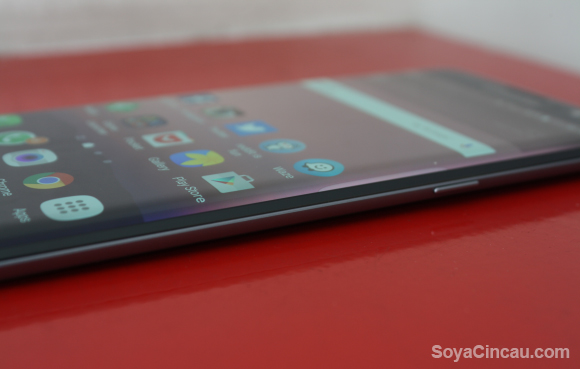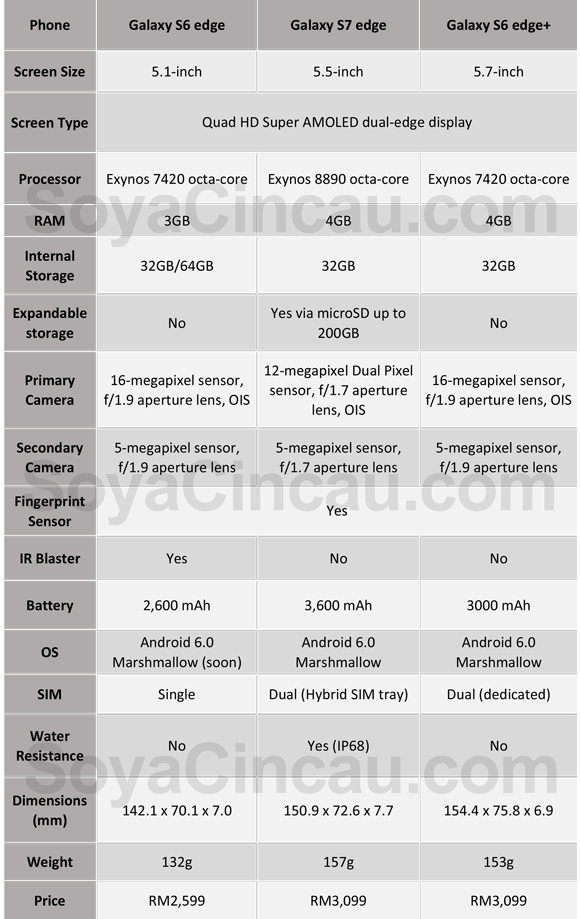Dual-edge displays are a magnificent thing to behold. They look utterly unique and gives everyday smartphone tasks a little pizzaz. It’s hard to put into words what the experience is like, it’s really something you should see for yourself.
Sure, you could head to a Samsung store to play with one of the demo units, but from my experience, you fully appreciate the experience only once you start using it as your daily driver. If you’re keen, the only thing left to ask is: Which edge do you get?
To date, Samsung has churned out four edge devices — the single edge Galaxy Note Edge, the Galaxy S6 edge, the Galaxy S6 edge+ and the Galaxy S7 edge. While the Note Edge did get the ball rolling, it didn’t have a dual-edge display and its edge functionality is slightly different from the dual-edge displays we know of today. It’s more of a one-of-a-kind smartphone.
If we’re looking at dual-edge smartphones. the choice would then fall to the remaining three — the S6 edge, S6 edge+ and S7 edge — all of which are enticing choices.
Logic would dictate that the latest S7 edge is the easy choice, being the latest and most powerful of the trio, but, people might take issue with the 5.5-inch panel on the S7 edge. They might, for instance, prefer the larger 5.7-inch S6 edge+ or even the smaller 5.1-inch S6 edge. But what are the trade-offs?
Performance
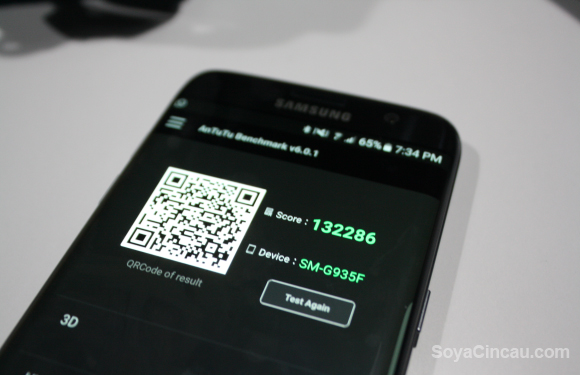
On paper, the S7 edge definitely wins out here as it sports Samsung’s newest top-of-the-line octa-core chip in the Exynos 8890. Paired with 4GB of RAM and Android 6.0 Marshmallow and this device will zip through and remain snappy regardless of what you’re doing with the device.
However, it’s not to say the other two are sluggish — Samsung’s 2015 flagships still pack a punch. Throughout our usage of both the S6 edge and S6 edge+, we didn’t encounter any problems with lag or stuttering going through daily tasks. It’s still a powerful device by today’s standards and will likely keep going strong for quite some time.
Likely the biggest difference you’d notice is the heat under stress. The S6 edge and S6 edge+ gets noticeably hotter than the S7 edge though not to the extent where it gets uncomfortable.
Camera
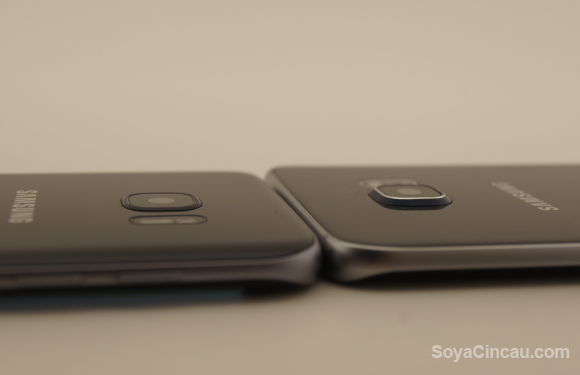
Here’s where the S7 edge nudges ahead of the other two devices too. It’s simply got a better camera, despite the drop in megapixels, as that 12MP Dual Pixel camera is one of the best smartphone snappers in the market right now.
In addition to an awesome low-light performance, the camera on the S7 edge focuses incredibly quickly too — basically in the blink of an eye. That said, the S6 edge and S6 edge+ were renown for their excellent cameras. Everyone in the office was impressed with how good of an experience it is and that kind of quality doesn’t just disappear when a new camera comes out. The S6 edge duo are still very solid smartphone shooters.
[nextpage title=”The battle royale”]
Features
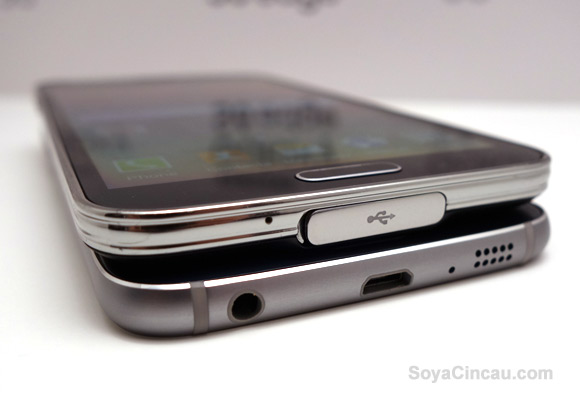
The S6 models were a painful transition for some coming from the S5 in terms of features. Although they had a much nicer look and build, the S6 edge and S6 edge+ sacrificed several key features, among which are water resistance and a microSD card slot.
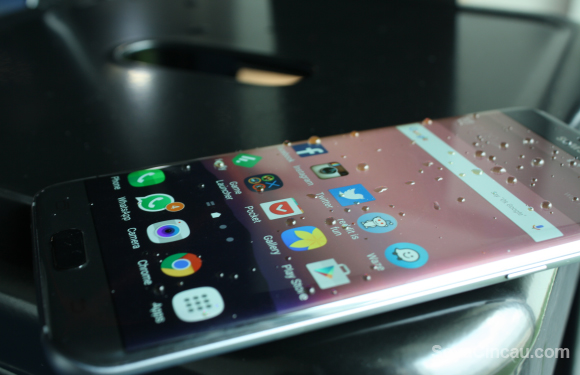
Smartphone users who require these two functions might prefer the new S7 edge instead. Samsung’s latest has both an IP68 water and dust resistance, plus a microSD card slot that supports expansion up to 200GB. It is in a hybrid SIM tray though, so if you have two SIMs and a microSD, you might have to sacrifice one.
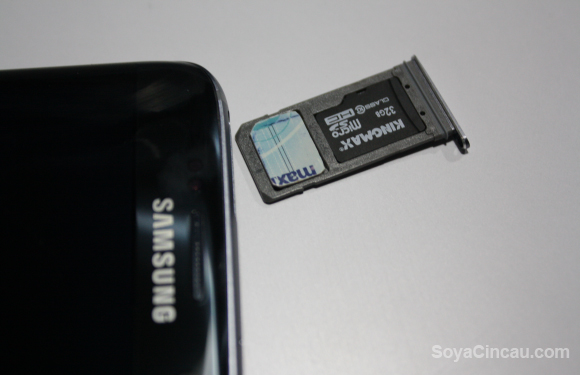
That said, the one feature the S7 edge lacks is an IR blaster. Along with the S6 edge+, Samsung seems to have abandoned the infrared port on its two newer devices. The S6 edge retains this feature though, so if that’s crucial to you, the S6 edge is the way to go.
Build
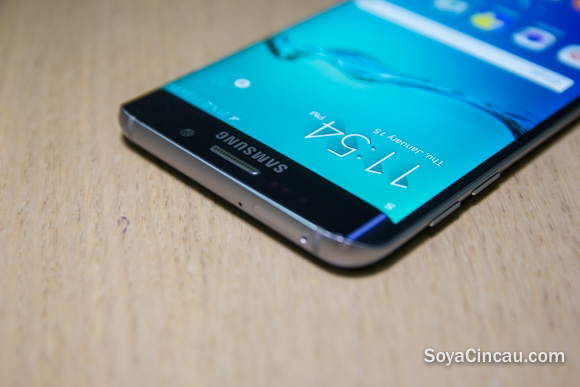
Samsung really turned it around with the premium materials they used to construct the S6 and S6 edge. They were so beautiful, finally feeling like a proper flagship smartphone should. That design language was carried on to the larger S6 edge+, but I definitely think it was further refined with the S7 edge.
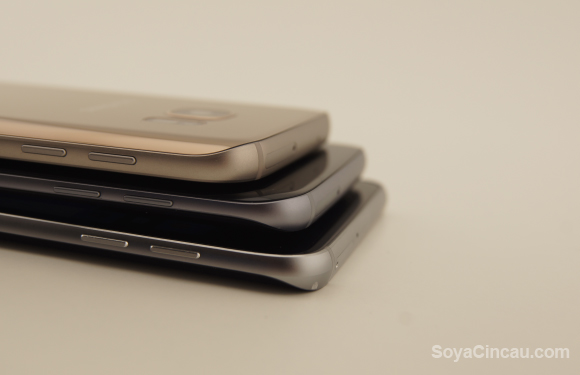
Of the three devices, the S7 edge feels the most polished. The edges come together better and the overall fit and finish is so close that it feels nearly seamless. The addition of the curved back panel makes it easier to pick up off the table while helping the slightly thicker phone feel as thin as the older devices. While there’s no doubt that the S7 edge wins the build award, it’s not that the other two devices are shoddy or poorly fitted, they’re still phenomenally designed devices.
Price
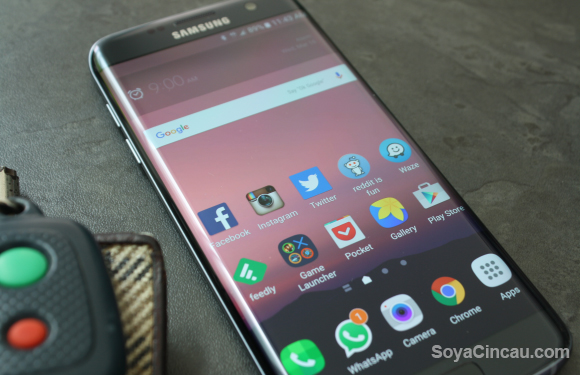
Here’s where it gets a little tricky. When all three devices saw their first launch, they were all priced at the same RRP of RM3,099, which is a lot, but that’s understandable since these were among the best smartphones of their time. Now that the new S7 edge has launched locally, you’d expect Samsung to drop the price of the other two, but that isn’t the case.
Beyond the initial drop in the S6 edge’s price (to RM2,599) Samsung aren’t going to alter its price or the S6 edge+’s launch price. That means the older S6 edge+ will be priced at the same point as the S7 edge.
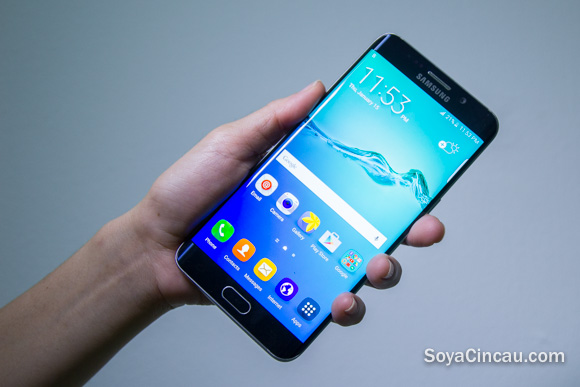
I don’t know about you, but that seems like a hard pill to swallow. While I can see why Samsung decided to retain the price since the S6 edge+ is still a solid performer with a larger screen (and sells virtually unopposed by another Samsung product), it seems that all the horsepower and camera improvements in the S7 edge would outweigh the 0.2 inches of screen real estate.
Then again, there are those who simply must have a larger screen, and if you’re talking purely about screen size, it isn’t that bad of a deal. I’m a big fan of big-screened smartphones, but even I wouldn’t go for the S6 edge+. The specs, camera and likely longer software support of the S7 edge is simply too good to give up.
[nextpage title=”Comparison table”]We’ve listed down all the specs for each device and compiled them into a table so you can see how they stack up against each other by the numbers. Click on the table to view a larger version.

